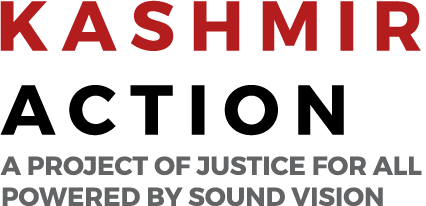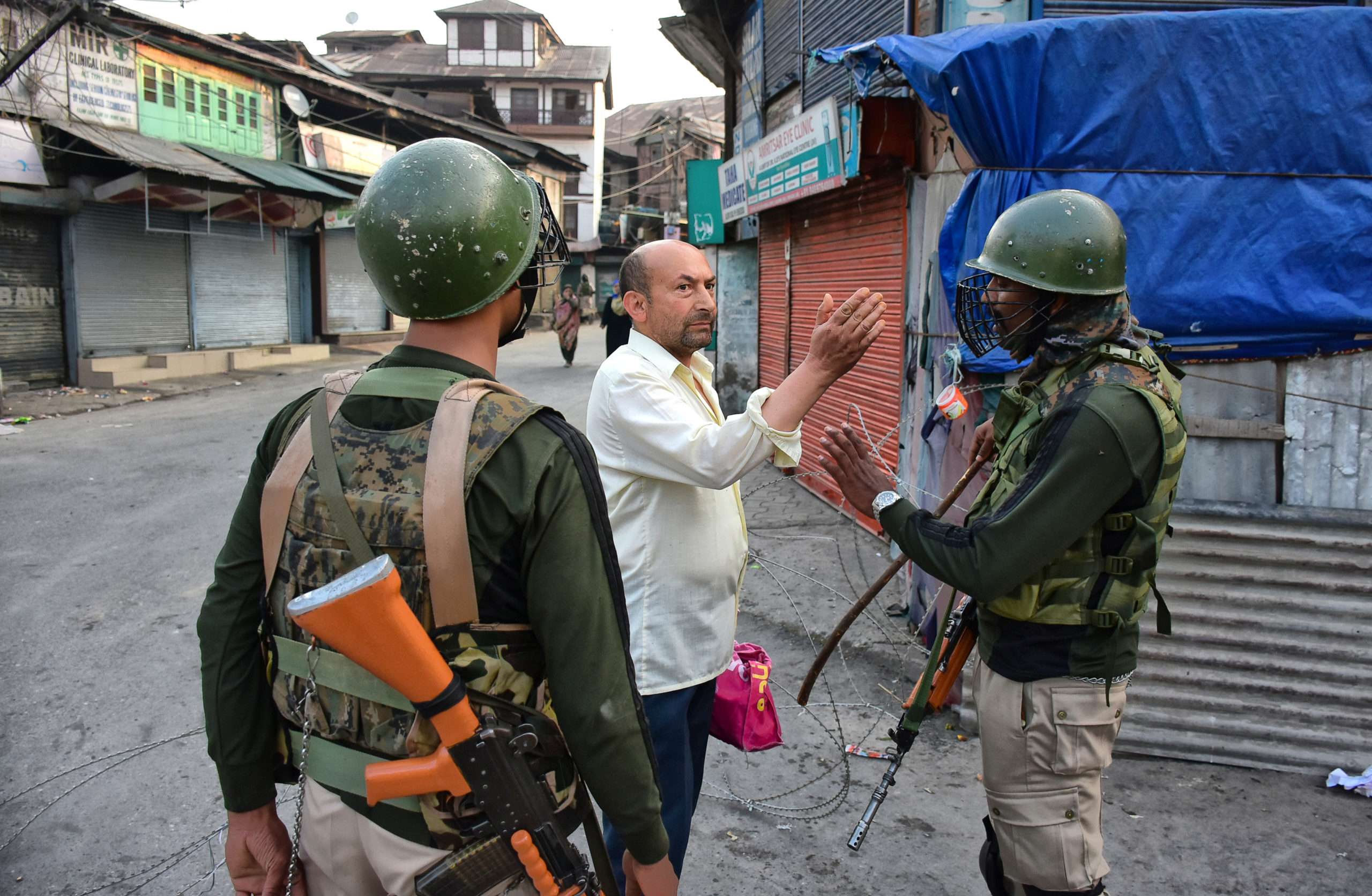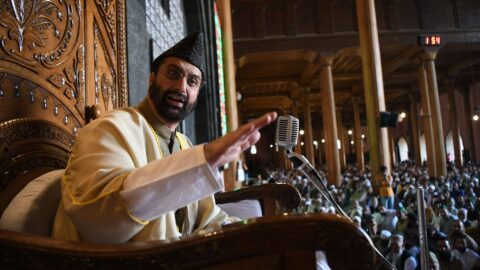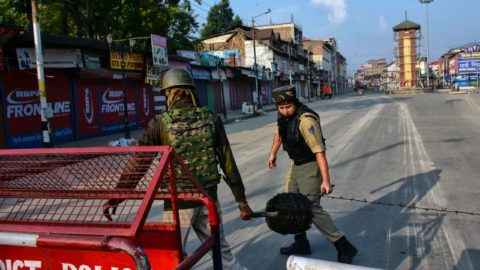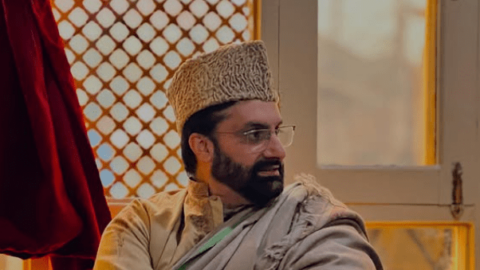On December 27th, Mirwaiz Muhammad Umar Farooq, was barred from leaving his house to lead…
Kashmiris forced to welcome Modi on his visit to valley
On March 7th, Hindu-nationalist Prime Minister Narendra Modi arrived in Kashmir on his first visit to the valley after the abrogation of Article 370 in August 2019.
Ahead of his arrival, the Hindu nationalist administration installed Bhartiya Janata Party (BJP) flags throughout the valley. Srinagar was transformed virtually into a military colony, with an army man positioned every 50 meters.
The city was designated as a “Temporary Red Zone”, with pervasive operation of surveillance drones, quadcopters, and snipers. Srinagar Police had warned locals of serious consequences in case anyone engages in any pro-freedom activity or criticizes the ruling Hindu nationalist political dispensation.
Barricades were raised throughout the city and the public was denied the right to movement. Kashmiris speaking to us on the condition of anonymity stated that there was great frisking, interrogation, and harassment that they faced even when they left their house to buy essentials such as medicine or food.
While locals were frisked and their vehicles searched, Indian tourists were allowed to roam freely. Amidst all this heavy militarization and repression of dissent, Modi claimed in his public rally that he had “won the hearts of Kashmiris”.
In addition to this, numerous Kashmiris were taken into illegal detention prior to Modi’s arrival. These were largely those Kashmiris who had a record or history of having participated in the popular movement advocating for Kashmir’s right to self-determination. The families informed us that when they challenged the detention, the police officials told them that their detained family members would be released after Modi leaves Kashmir.
Modi also addressed a rally in Srinagar. Thousands of employees, both men and women, were forced to assemble for Modi’s speech and were even transported from their homes to the venue. This attendance was not optional but mandatory, and employees who failed to comply were threatened with action by their department heads, including suspension from employment.
The employees who were not in the valley were asked to fly back immediately or failing to do so, face suspension. This element of coercion was highlighted even by pro-India politicians such as Omar Abdullah, who criticized Modi for forcing Kashmiris to attend his speech. Some employees also were bribed into attending the speech, lured by free food and money.
According to Kashmiri rights group Stand With Kashmir (SWK), Modi’s visit is strategically timed right before the nationwide elections to be held in April. The visit allows Modi’s base to feel that he has “conquered” Kashmir and put an end to the self-determination movement. Moreover, SWK asserts that the visit is part of an attempt to create an impression of normalcy for Indian and international audiences. Additionally, given the dire economic situation in Kashmir since August 2019, the Indian government knows that it will be able to force Kashmiris to comply and feign support for the very same occupying administration which wrecked them and their economy.
